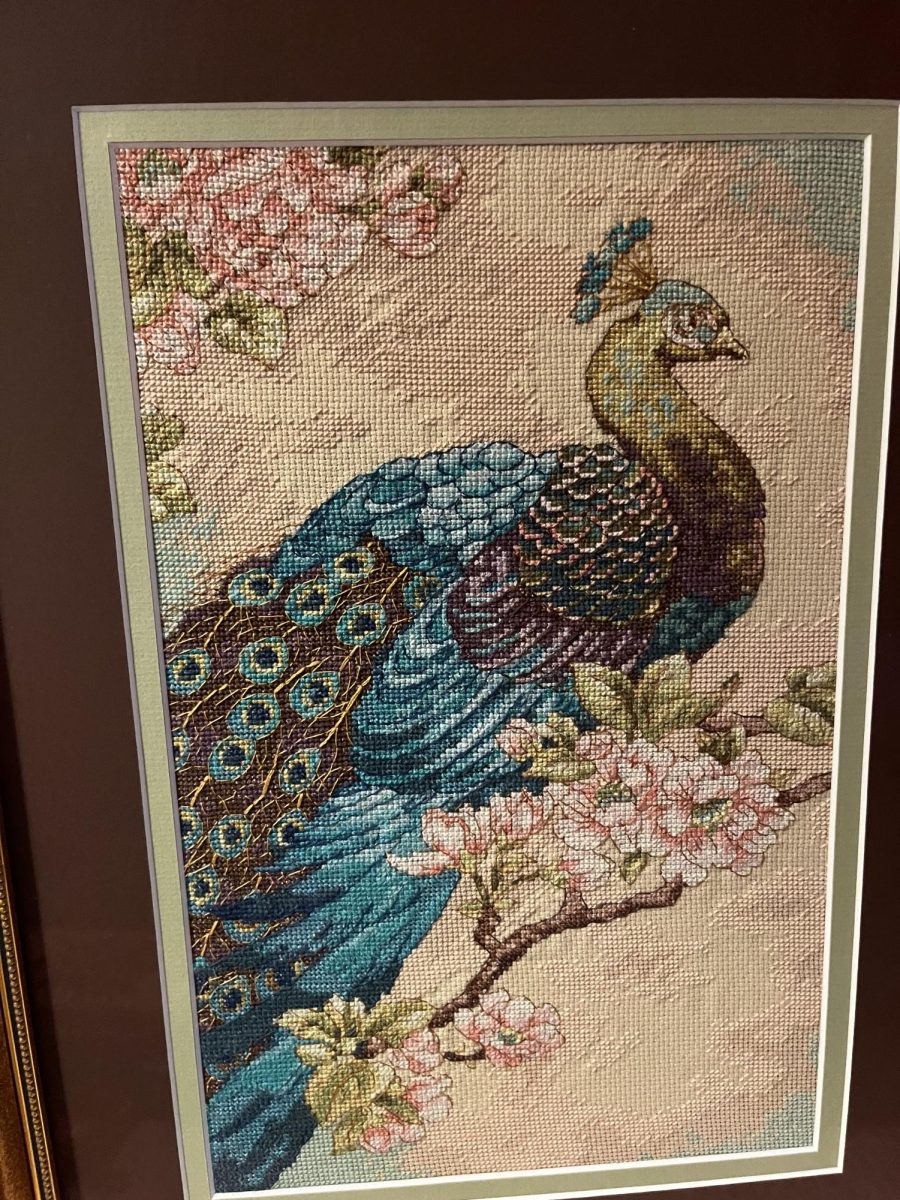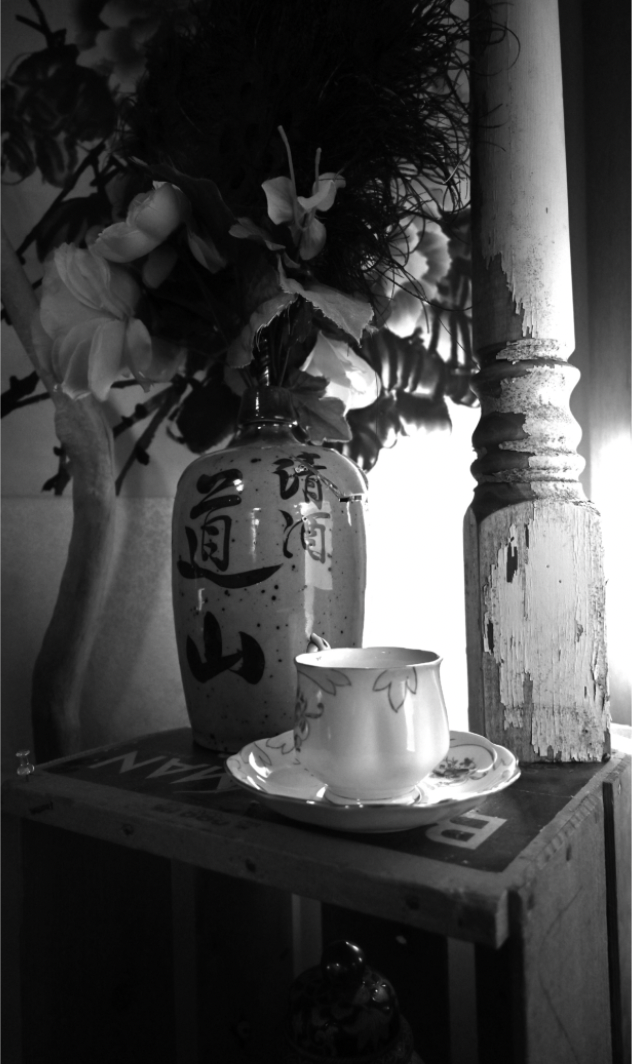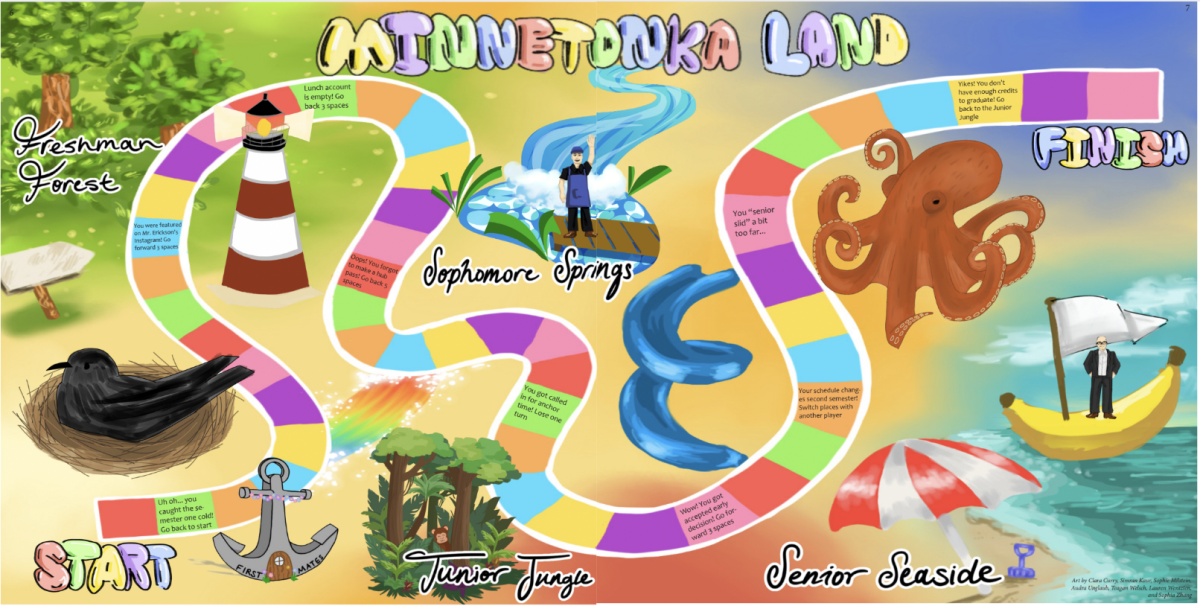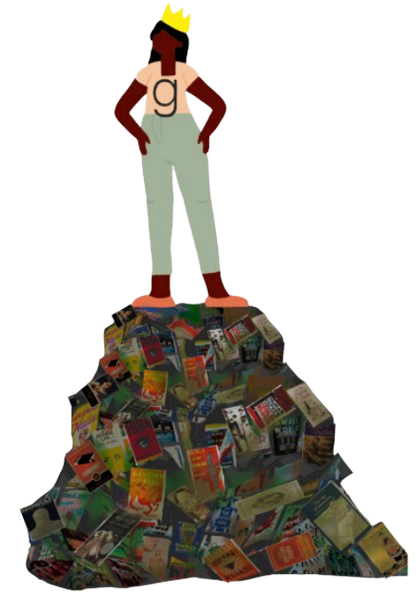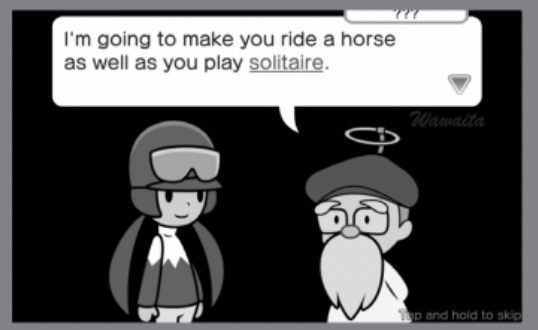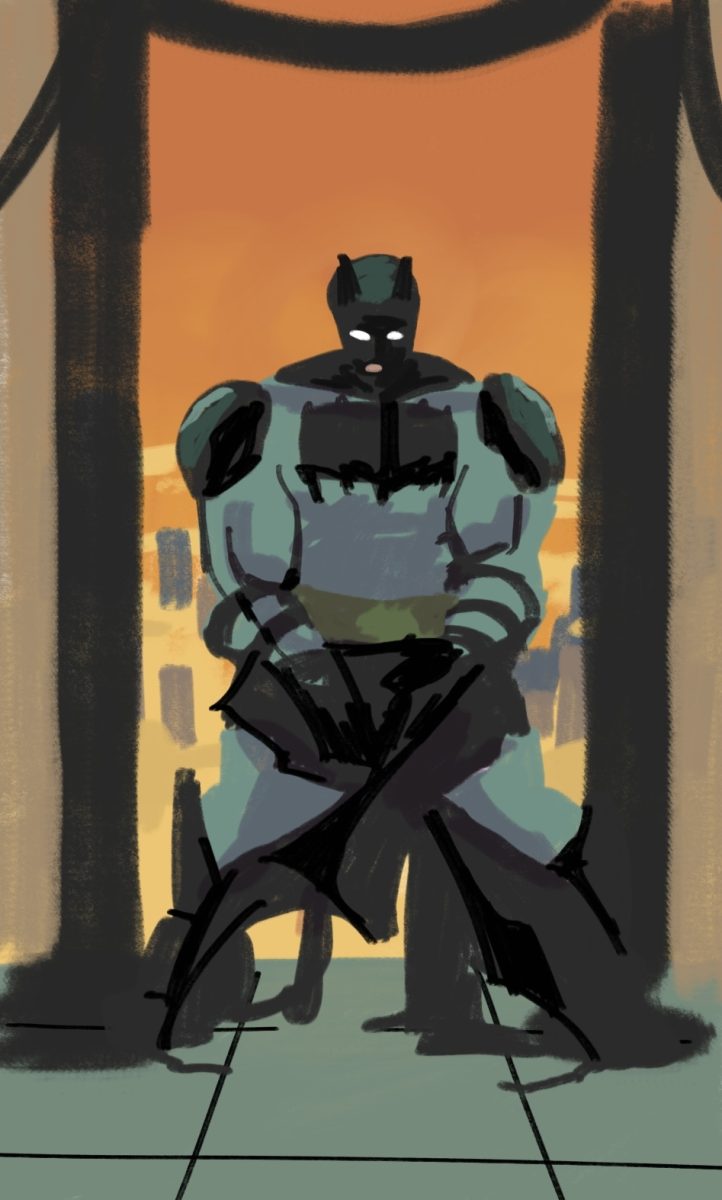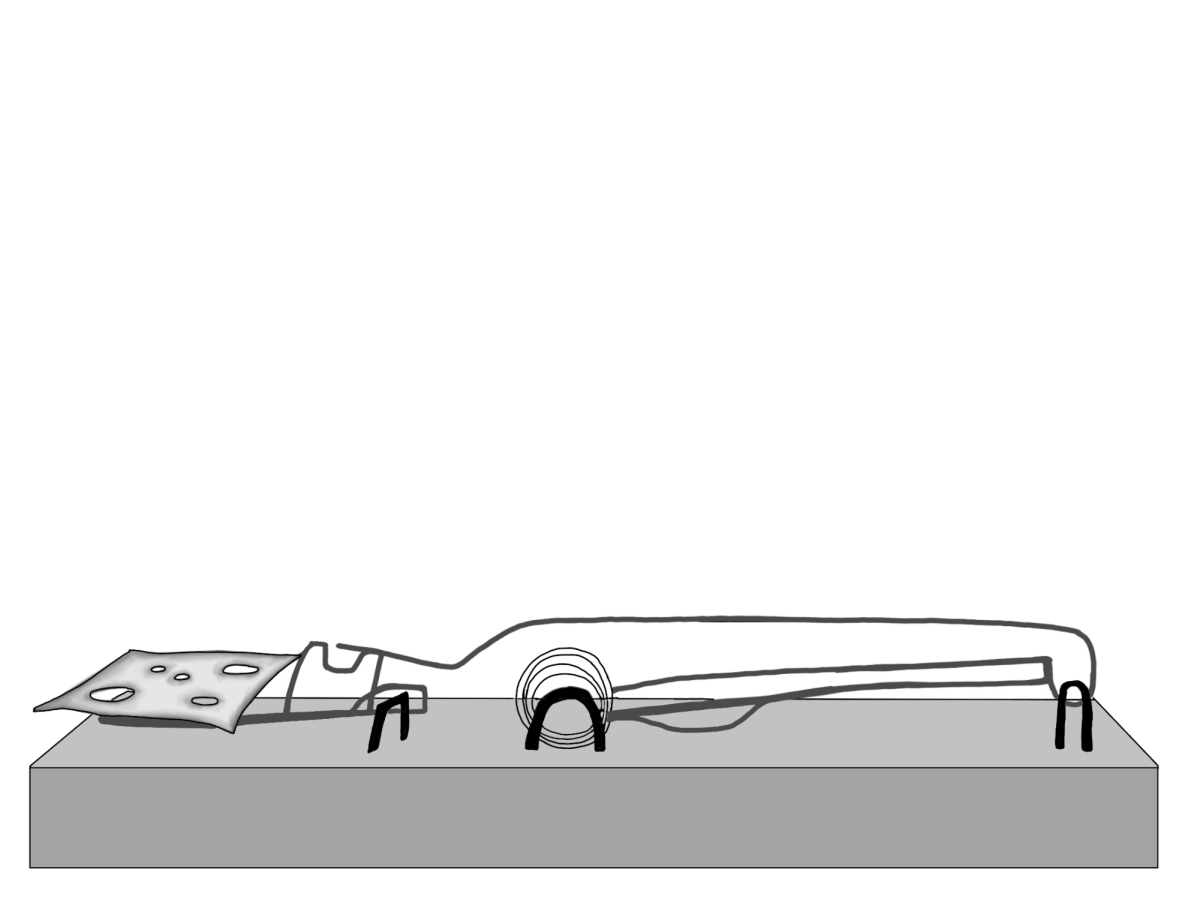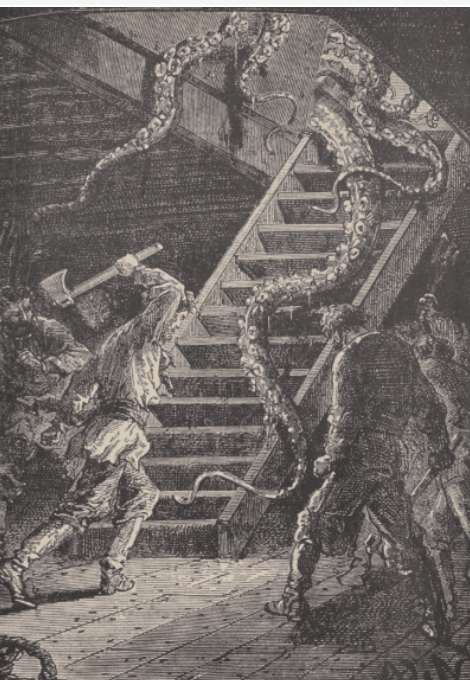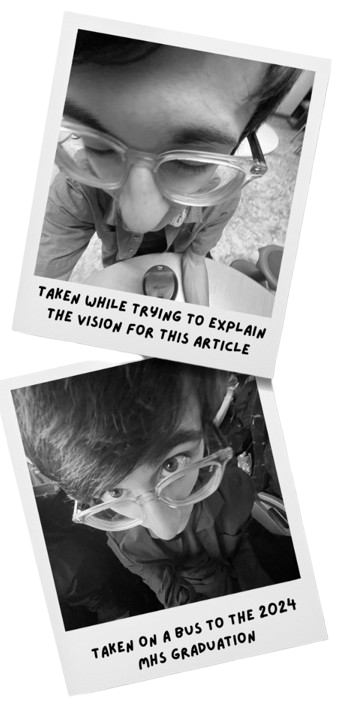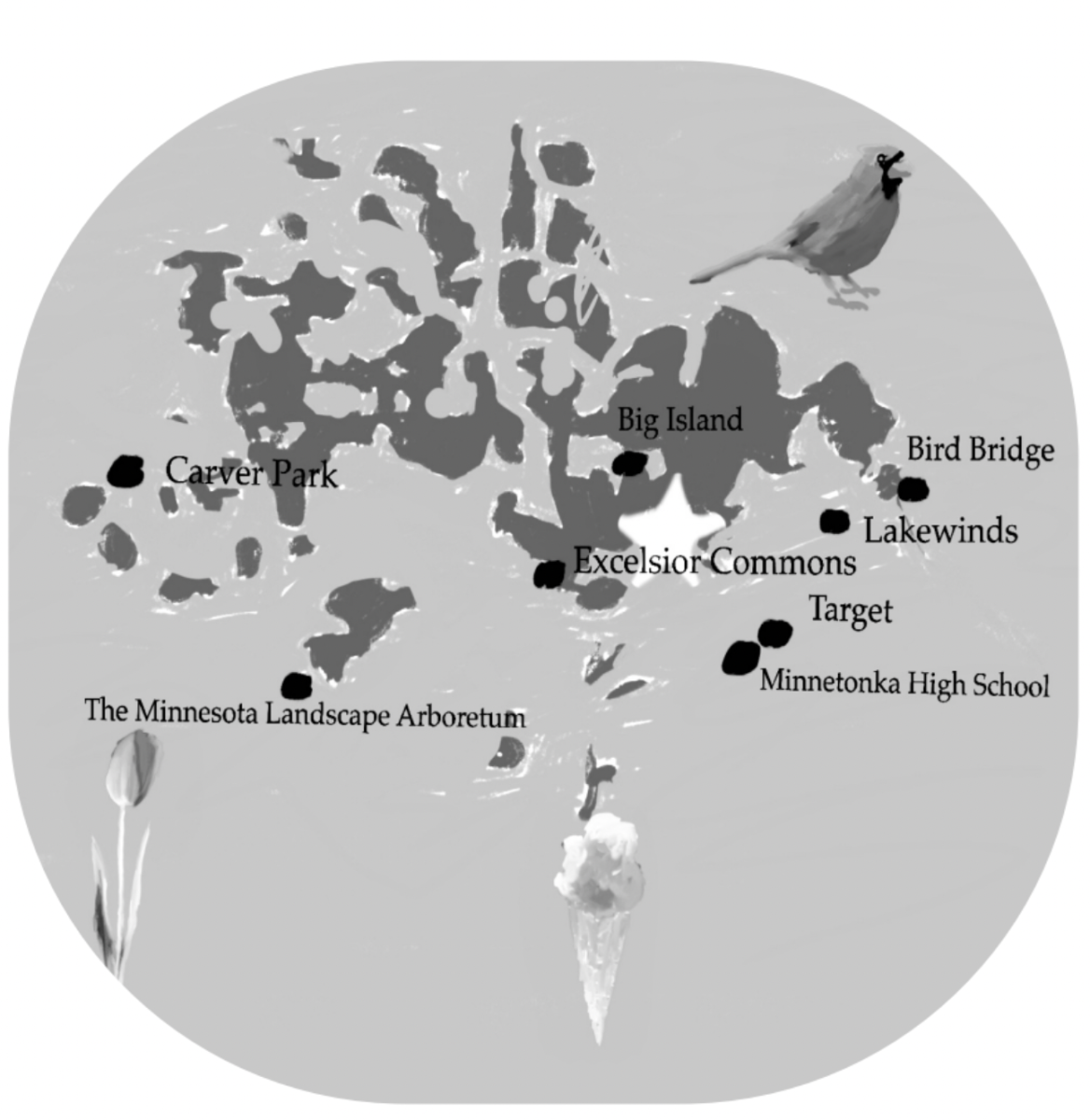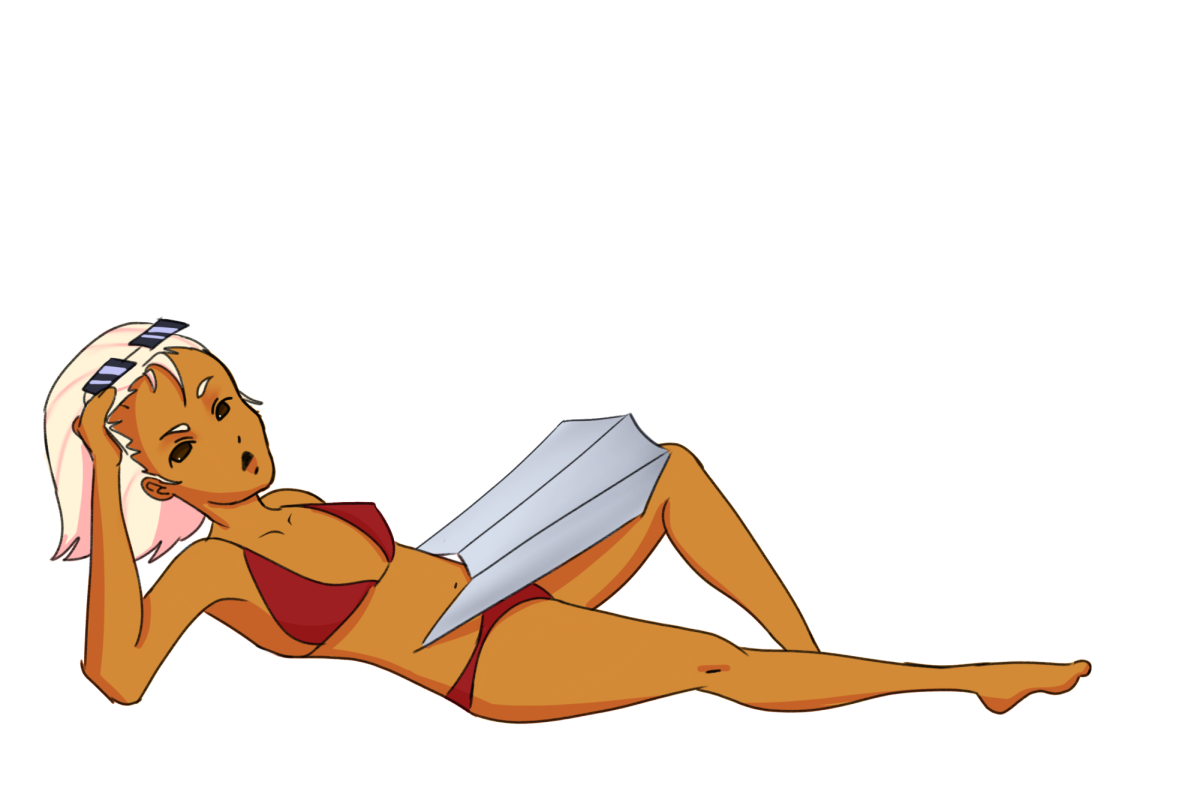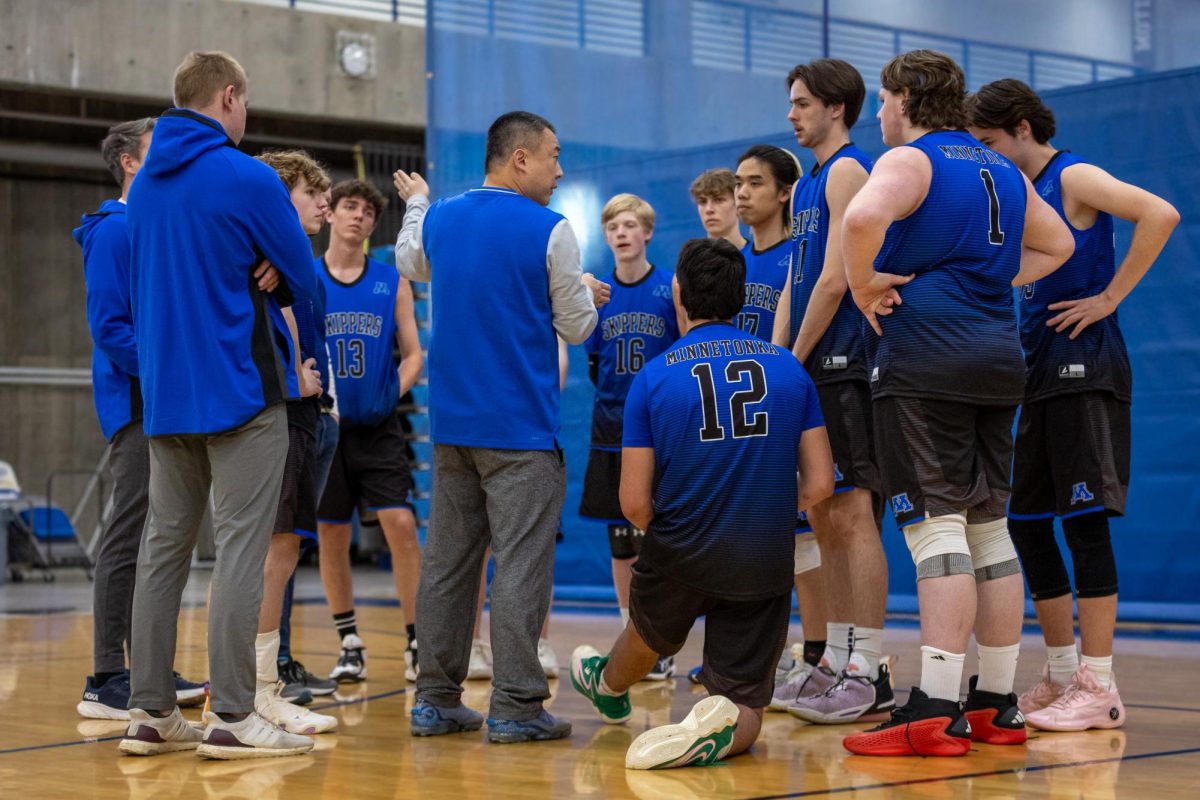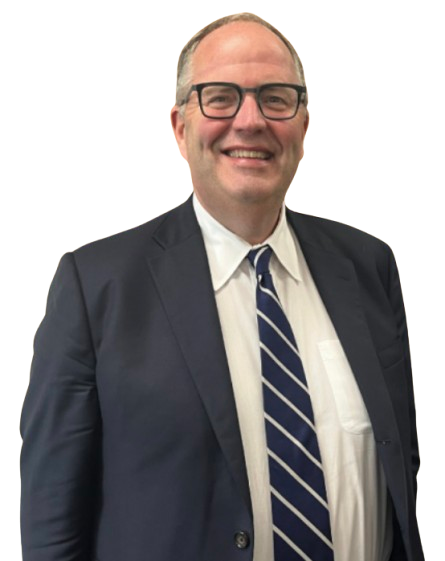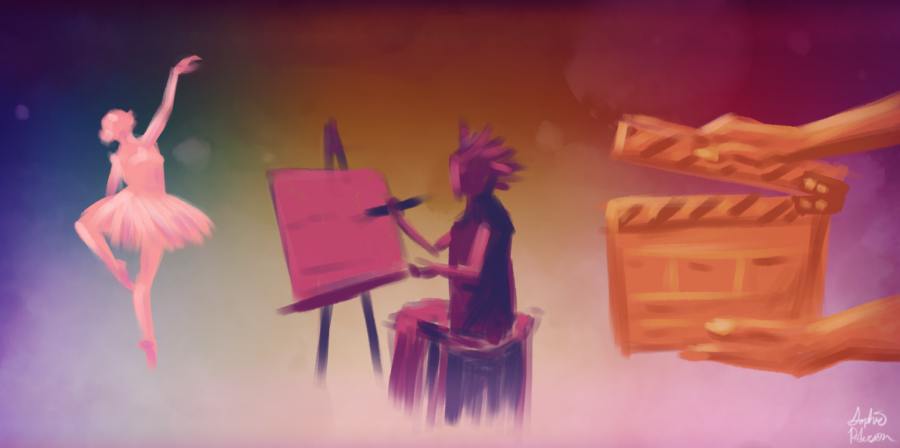Artistic Passion Over Financial Stability: The Voices of Tired Art Students
October 29, 2021
Ask anyone and they can probably remember the first time someone made them feel insecure or judged. For many, the experience sticks out from other memories because of how bad it made them feel. For Gabby Vanzandt, ‘24, it was in first grade.
“When I was little, I was a very expressive person, and I showed this a lot through my sense of style. I would openly talk about my love for art and was really confident, but I remember in first grade getting told by kids at school that I would be poor if I wanted to go into art. I knew art and expression made me happy, but this hurt me. It’s really weird to think about now that at that young of an age kids were under the impression that money was the only thing that mattered and that pursuing your dreams meant you weren’t going to be successful,” said Vanzandt, who hopes to go into fashion after high school.
This conversation is not uncommon for students who are interested in the arts. Whether it be in painting, singing, film or something else similar, it can be difficult to tell others about an interest in a career in arts or even a focus on the arts in high school. It opens the floor for judgment and critical remarks like Vanzandt experienced.
Phrases such as “you’ll never make it” or “you will never make enough money” are often more common than encouragement and can wear on prospective artists. While these fears are often voiced with good intentions, many of these students who want to go into the arts already know the risks and want to go forward with their passion anyway.
Ravelle Rute, ‘22, agreed.
“School does not allow children to be as creative as they’d like to be. I even own a shirt that says ‘school kills artists,’ and I really do believe that. Being an artist isn’t supported or welcomed because it doesn’t fit into all of the normal boxes and paths it should.”
Cassie Beddor, ‘22, is passionate about acting. She is currently going to a fully online school so she can focus most of her time on acting programs and visiting New York City or Los Angeles to look at acting colleges and pursue work opportunities.
“A lot of people have opinions, and it’s funny because it’s usually the people who don’t know what they’re talking about who shoot me down the most. They say things like ‘Oh my god that’s going to be so hard, most people don’t last a year!’ But the thing is, I know it’s going to be hard. I wouldn’t be putting in all of this work for nothing. It is not the most positive thing to hear, but I think that when you’re really passionate about something you don’t really care about what others say. But of course you want people to be supportive,” Beddor said.
“I think [traditional school] discourages the individuality that comes with artistic interests. Schools tend to stifle freedom of expression with things like the dress code, and school expectations have often put creative and artistic people down. There is also a large relation between ADHD and other mental conditions and artistic expression in classrooms. I think the school could go about supporting students with these issues in a better way, which would improve their support of artistic students,” Vanzandt said.
This perceived stigma against artists can cause them to feel unsupported. These constant comments do not make people feel cared about; instead, they cause unnecessary insecurities and anxieties.
“I think there is this stigma because people like having these really defined paths. Someone can understand another person saying, ‘I want to be a doctor. I want to go to school for eight years, get my medical degree, and then become an intern and a resident and then I’m a doctor.’ It is very defined and it seems like a really clear cut path that people can wrap their heads around, even though it is a very difficult career. There is no one pathway for art students, so it is scary when kids say they want to be artists, especially for adults. There is no super obvious way that you can get to what you want. It is uncertain, but I do believe that it pays off a lot more,” said Beddor.
Most of the criticism surrounding arts careers centers around the inconsistency of money
in those jobs. This is an important consideration that needs to be weighed by those who want to pursue the arts. However, for many with passion, those comments do not deter them.
“I think a lot of people look at art as more of a hobby than a career path and think that it’s
not a real job. I’ve had a lot of experiences with people telling me that going into the art field means you won’t be able to make money and that it’s setting you up for failure,” said Vanzandt. “People also assume that the only reason you should pursue a career is if it will make you a lot of money. The connection to passion and art is really strong and today people tend to put making the most money first even if they are doing something they don’t enjoy,”
This is certainly true for Beddor, Rute, and Vanzandt, as art has always been an important
part of their lives and that passion isn’t going away anytime soon.
“I have always wanted to go into art because it’s been my passion since I was really
young. I was always doing something creative in my free time. I love creating things more than anything,” said Rute.
Vanzandt said, “I’ve always been interested in art, and I’ve gone back and forth between
what career I really want to pursue because I’m interested in so many different aspects of it. When I was little my dad and I would have drawing days where we would sketch together and that really fueled my passion for it.”
“As a kid I was obsessed with movies. I would memorize scenes from movies and I
would gather my entire family and I would perform for them. The first movie I remember doing this for was The Sound of Music, and as I got older it continued with more and more films,” said Beddor. “I just really love storytelling. That element is so intriguing to me. [Through acting], I get to tell different stories that are important to all different people. There is also a sense of escapism in film too, and, as an actor, you can help people escape in this way. That feels really important to me.”
The arts are important to people of all ages, and cultivating those talents and passions,
rather than diminishing them, is necessary, both for students and for the community that would lose out on their talents. Not only will it help get rid of societal stigmas, but it can help make so many kids feel truly cared for. That alone should be a reward worth working towards.

